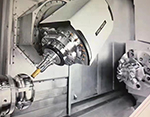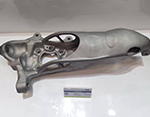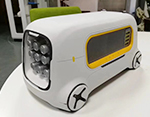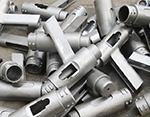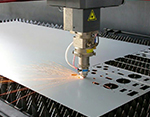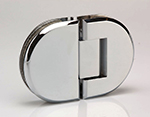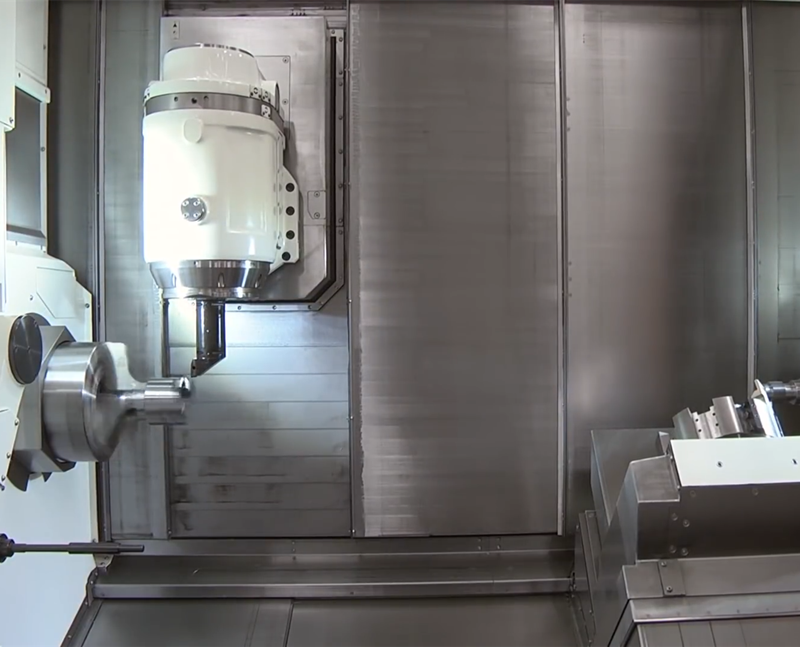Benefits of Rapid Prototyping
Rapid prototyping is a manufacturing process that can bring many advantages to both rapid prototyping companies and consumers. For example, manufacturers can speed up production cycles with the metal rapid prototyping process, resulting in faster delivery of prototypes that meet customer needs. For consumers, they can get updated versions of their favourite products faster.
● Easier testing of new product features before production
Rapid prototyping allows you to 3D prototype your product in a rapid production cycle so that you can test any new features before production. You can even try out a new idea for your product and see if you can work it out.
● Speed up production cycles
Prototyping is a manufacturing process that can speed up the production cycle. It will help you get through testing. Rapid prototyping 3d printing and CNC rapid prototyping are faster, enabling you to mass produce your product as quickly as possible.
● Assess the environmental friendliness of any product
The materials you use for product development can be detrimental to the environment. 3D printed prototypes allow you to assess the environmental impact of your product before you put it into series production.
● Reduce production costs
Prototyping uses more efficient manufacturing equipment and techniques to help you produce more product parts at a lower cost, while maintaining the best quality of the final product.
● Allows for massive improvements to each product
You can use CNC prototyping to improve every aspect of your product. It will allow you to test multiple parts of the product and improve them to produce a better version.
● Prevent any failures in certain product components.
You can use CNC prototyping to test various parts of your product and determine if they have specific weaknesses. This will therefore help you to prevent any faults in certain product components, which will also help you to keep your customers happy with your products.
Our rapid prototyping process
You are replying to a variety of rapid prototyping and rapid prototype casting techniques to provide the best possible service for your product. The manufacturing techniques used in prototype processing vary from company to company. Rapid prototyping companies will use the manufacturing technology they choose that best suits their needs. At Kesu, we offer a range of rapid manufacturing methods to produce your prototypes:.
● 3D printing
3D printing means creating 3D objects, such as prototypes, hardware parts or components, layer by layer using additive manufacturing methods. With 3d rapid prototyping, you provide a 3D design to a 3D printing device and the 3D printer will create a 3d printed prototype based on the design you provide.
● CNC machining
CNC machining or CNC rapid prototyping is a manufacturing process in which you use pre-programmed software and specific code control systems to control the movement of the manufacturing equipment. Additive CNC machining can produce very accurate and precise cuts for prototypes, which are best suited to making hardware components that need to be fitted with other components.
● Vacuum Casting
Vacuum casting is a manufacturing process that involves pouring molten plastic material into a mould and then cooling it to achieve the shape you want. You can use this vacuum casting rapid prototyping service to produce complex part designs and to manufacture parts in small batches.
● Sheet metal processing
In sheet metal manufacturing, you can use sheet metal to form various prototypes and hardware parts through a variety of sheet metal manufacturing methods. This is another type of prototype processing. You can use different sheet metal materials to create hardware parts, components or prototypes. Each sheet metal material has its advantages and disadvantages.
Kesu always provides our customers with the best rapid prototyping services for high quality parts and prototypes at the lowest possible cost. Contact us today to find out more!


